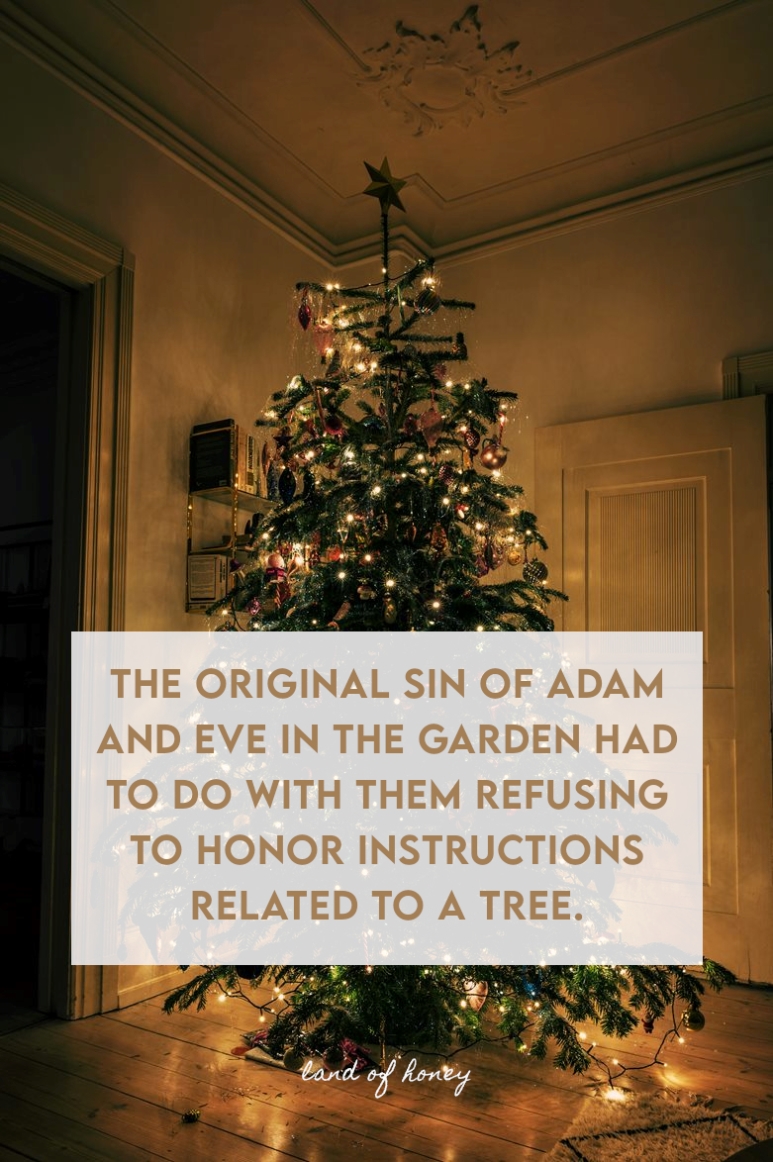Are Christmas trees in the Bible? Even though most people believe Christmas is "in the Bible," most of its traditions and customs do not come from Scripture. You probably don't need me to tell you that stockings full of gifts, Santa Claus, candlelit services, Rudolph the Red-Nosed Reindeer, hanging mistletoe, and eggnog are not found anywhere in Scripture. But one popular Christmas tradition is found in the Bible.
Do you know what it is? The Christmas tree.
Now, it's not explicitly called that. The word 'Christmas' is never used in any book of the Bible - Old or New Testament. Many believers will be surprised to learn that Scripture never tells us to celebrate Christmas or even the birth of Jesus. But Jeremiah 10 does describe something familiar to all Christmas celebrations. The description sounds a lot like the brightly decorated evergreen trees that many Christians place in their homes in December.
Where are Christmas trees in the Bible?
We can find reference to this in the writings of Jeremiah:
Thus said YHWH, "Do not learn the way of the nations, and do not be awed by the signs of the heavens, for the nations are awed by them. For the laws of these peoples are worthless, for one cuts a tree from the forest, work for the hands of a craftsman with a cutting tool. They beautify it with silver and gold, they strengthen it with nails and hammers so it doesn't topple." -Jeremiah 10:2-4
They cut a tree...they decorate it...and they secure it so it doesn't fall over. Doesn't that sound very much like a traditional Christmas tree to you?
We should note that Jeremiah is quoting the Living God himself here. These are YHWH's words, and they start with, "Do not."
Why does the Bible say not to cut trees down and bring them into our homes? Are Christmas trees bad?
In Scripture trees are often connected to worship of other gods. Deuteronomy 16:21 says that no kind of tree is to be planted beside the altar of YHWH. Jeremiah 3:9 says that the house of Israel committed adultery "with stones and trees." Several passages of Scripture warn of idols made of trees. And a common phrase connected with idolatry throughout the Bible is that it occurred under "every green tree." And then of course the original sin of Adam and Eve in the garden had to do with them refusing to honor instructions related to a tree.
Yes, trees were made by the Creator and have many positive references in the Bible. And no, I certainly don't think that all trees are bad somehow. But the connection between trees and sin and idolatry gives me pause, especially when there is the verse in Jeremiah that strongly correlates to the Christmas trees we see in so many churches and households.
Now many people will tell you that the tree in Jeremiah 10 is not a Christmas tree. They believe it's fine to cut a tree down and decorate it since they aren't worshiping that. But this passage of Scripture says not to learn this way because it is "worthless." What does it mean if we are taking Luke 2 (the story of the Messiah's birth) and mixing it with something the Living God calls worthless? Is that watering down the message of the Gospel? Is that confusing people who read the Bible and see how it contradicts with popular Christian theology and lifestyles?
Scripture tells us in the golden calf story that the people involved meant that as a way to worship YHWH (Exodus 32:5), but YHWH himself still called the calf an idol in Exodus 32:8. Even if he hadn't done so, I think most of us would still refrain putting any sort of golden calf or cow statues in our home - even if we didn't intend to worship it. In the same way, it makes sense for believers to honor this Biblical admonish "not to learn" the way of those who cut a tree down and take it inside and decorate it.
Related posts:
Five Things Every Believer Should Know About Christmas
The Christmas Question Documentary Interview with Kayte Abaffy
Why I Stopped Celebrating Christmas










.JPG)